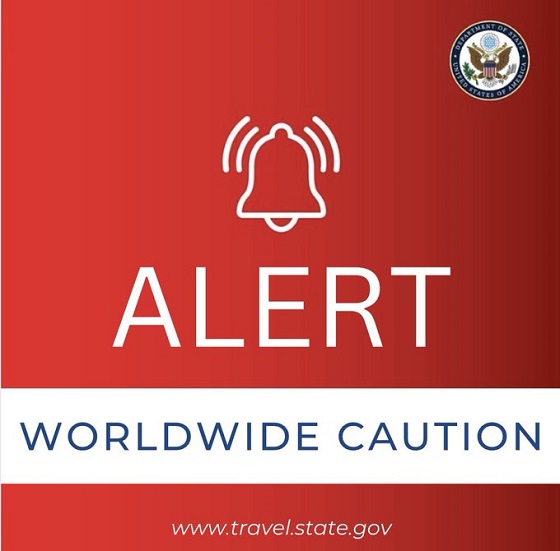Education
Catholic school board members oust fellow trustee for opposing LGBT agenda, talking to media

From LifeSiteNews
One of Monique LaGrange’s fellow trustees said she ‘violated the Trustee Code of Conduct by speaking to the media about what the Board did and about gender ideology.’
A Canadian Catholic school trustee opposed to extreme gender ideology and who compared the LGBT agenda targeting kids to that of “brainwashing” Nazi propaganda has been “disqualified” from her position after her fellow board members voted her out because she spoke to alternative media.
On Tuesday, the Red Deer Catholic Regional Schools (RDCRS) board of directors voted 3-1 to disqualify Trustee Monique LaGrange. As a result of being voted out, LaGrange later resigned from her position.
LaGrange’s lawyer, Alberta-based attorney James Kitchen of Liberty Coalition Canada, told LifeSiteNews that the RDCRS voted to kick her out “pursuant to section 87 of the Education Act (disqualification).”
Kitchen said that one of LaGrange’s fellow trustees “submitted a second complaint that Monique had violated the Trustee Code of Conduct by speaking to the media (specially Laura-Lynn and Talk Truth) about what the Board did and about gender ideology.”
On September 26, the RDCS passed a motion to mandate that LaGrange undergo “LGBTQ+” and holocaust “sensitivity” training for her social media post.
One of her fellow trustees had complained that because she spoke to the media against gender ideology, after she was ordered to undergo the training, she should be “disqualified.”
LaGrange said that her being disqualified shows that “Alberta has an abuse of power happening, beginning at the lowest level of politics,” in comments made to alternative non-legacy media.
She added that she hopes her removal “motivates Albertans to step up and replace these woke boards in our province.”
LaGrange said she will continue to “move forward and defend our families, our children and our freedom.”
LifeSiteNews contacted LaGrange for additional comment and will later provide more information on her ousting.
In a media statement yesterday, the RDCRS said that LaGrange had violated “sanctions issued on September 26, 2023, and further violations of Board Policy and the Education Act.”
“As a result of the disqualification, as per Section 90 of the Education Act, LaGrange resigned from her position this morning. Effective today, Mrs. LaGrange is no longer a member of the Red Deer Catholic Regional Schools Board of Trustees,” the RDCRS noted.
The RDCS did not specify which sanctions LaGrange had violated.
LaGrange initially came under fire when she posted to social media in September an image showing kids in Nazi Germany waving swastika flags during a parade, with the bottom of the post showing an image of kids waving LGBT “pride” flags along with the text, “Brainwashing is brainwashing.”
After her post went viral, calls for her to step down grew from leftist Alberta politicians and others. This culminated in her removal as director of the Alberta Catholic School Trustees’ Association (ACSTA).
LaGrange was elected in 2021 and said about being kicked out of the ACSTA that it was “unfortunate that ACSTA decided to make a rash decision to remove me, refusing to acknowledge that the heart of my message was to protect our children and to nourish their God-given identities.”
LaGrange to fight her removal
Kitchen told LifeSiteNews that as far as the next steps for LaGrange, they are looking to have her disqualification reviewed by a court.
They want a “Judicial review application to the Alberta King’s Bench,” Kitchen said.
“We will be doing that here in December,” he said.
When it comes to LaGrange’s social media post, which has been removed, she said that the post was about protecting kids, not hurting them, saying her meme was “centered around indoctrination and how children are vulnerable to evil agendas (agendas coming from organizations like Planned Parenthood, the UN or SOGI 123) filtering through culture.”
“This meme is not comparing or attacking the LGBTQ community, it is about protecting our children and keeping parents as the primary educators,” she added.
There has been growing opposition in Canada to the teaching of radical transgender ideology in schools, which not only impacts children but also those in education who voice their opposition to such teaching.
In recent months, many concerned Canadians have protested LGBT indoctrination in the nation’s schools. In September, thousands from coast to coast participated in the Million Person March.
Extreme leftists trying to push their LGBT agenda in the classrooms has led to the conservative-led governments of Saskatchewan and New Brunswick implementing parental consent policies into law.
Saskatchewan, under Premier Scott Moe, recently passed a new policy protecting parental rights that states parents must be told if their child changes “genders” at school.
Moe followed the example of New Brunswick Premier Blaine Higgs, who was condemned earlier this year by LGBT activists for reviewing the province’s “gender identity” policy that allowed schools to hide students’ “transgender” status from parents.
Under the new policy, teachers need parental consent to use different names or pronouns for students younger than 16.
At its recent AGM, members of the ruling United Conservative Party (UCP) under leader Danielle Smith passed a host of resolutions calling for parental rights to be protected.
Smith told 3,800 UCP members that she unequivocally defends parental rights, saying society depends on “strong and nurturing families” and parents are the “primary caregivers and educators” of their children.
Conservative Party of Canada (CPC) leader and MP Pierre Poilievre recently blasted what he called “radical gender ideology” targeting kids in public schools.
While LGBT activists have gone after the likes of Higgs and Moe for their slight pushback against gender ideology, a recent Leger poll has shown that Canadians in general favor parental rights in education, especially regarding the material being shared with children.
Alberta
Alberta poll shows strong resistance to pornographic material in school libraries

From LifeSiteNews
A government survey revealed strong public support, particularly among parents, for restricting or banning sexually explicit books.
Albertans are largely opposed to their children viewing pornography in school libraries, according to government polling.
In a June 20 press release, the Government of Alberta announced that their public engagement survey, launched after the discovery of sexually explicit books in school libraries, found that Albertans strongly support removing or limiting such content.
“Parents, educators and Albertans in general want action to ensure children don’t have access to age-inappropriate materials in school libraries,” Demetrios Nicolaides, Minister of Education and Childcare, said.
“We will use this valuable input to guide the creation of a province-wide standard to ensure the policy reflects the priorities and values of Albertans,” he continued.
READ: Support for traditional family values surges in Alberta
The survey, conducted between May 28 to June 6, received nearly 80,000 responses, revealing a widespread interest in the issue.
While 61 percent of respondents said that they had never previously been concerned about children viewing sexually explicit content in libraries, most were opposed to young children viewing it. 34 percent said children should never be able to access sexually explicit content in school libraries, while 23 percent believed it should be restricted to those aged 15 and up.
Similarly, 44 percent of parents of school-aged children were supportive of government regulations to control content in school libraries. Additionally, 62 percent of respondents either agreed or strongly agreed that “parents and guardians should play a role in reporting or challenging the availability of materials with sexually explicit content in school libraries.”
READ: Alberta Conservatives seeking to ban sexually graphic books from school libraries
The polling results come after the Conservative Alberta government under Premier Danielle Smith announced that they are going ahead with plans to eventually ban books with sexually explicit as well as pornographic material, many of which contain LGBT and even pedophilic content, from all school libraries, on May 27.
At the time, Nicolaides revealed that it was “extremely concerning” to discover that sexually explicit books were available in school libraries.
The books in question, found at multiple school locations, are Gender Queer, a graphic novel by Maia Kobabe; Flamer, a graphic novel by Mike Curato; Blankets, a graphic novel by Craig Thompson; and Fun Home, a graphic novel by Alison Bechdel.
David Clinton
Why Are Ontario’s Public Schools So Violent?


 David Clinton
David Clinton
Ontario’s Auditor General just released a performance audit on the Toronto District School Board. I’m sure it’ll surprise exactly no one that “financial and capital resources are not consistently allocated in the most cost-effective or efficient way” or that “The effective management of operations was not always being measured and assessed for internal decision-making”.
And there was plenty of institutional chaos:
“Between 2017/18 and 2022/23…about 38% of TDSB schools did not report conducting the minimum number of fire drills required by the Ontario Fire Code annually, and about 31% of TDSB schools did not report conducting the minimum number of lockdown drills required by TDSB policy annually. The TDSB does not have an effective process to ensure the required number of drills are performed by each school, each year, or that they are performed in accordance with TDSB policy when performed.”
What else would you expect from a massive government bureaucracy that employs 40,000 people, spends $3.6 billion annually and – based on many of the highlighted items on their website – is laser-focused on pretty much anything besides education?
What you might not have seen coming was that around half of the report centered on in-school violence. To be sure, we’re told that there were only 407 violent events reported to the board during the 2022/2023 school year – which is a rate of around 17 events for every 10,000 students. 17:10,000 doesn’t exactly sound like an environment that’s spiraling out of control.
There was a caveat:
“Due to input errors by principals, the TDSB underreported the number of violent incidents that occurred between 2017/18 to 2021/22 to the Ministry by about 9%.”
Ok. But we’re still nowhere near Mad Max levels of violence. So what’s attracting so much of the auditor’s attention? Perhaps it’s got something to do with a couple of recent surveys whose results don’t quite match the board’s own records. Here’s how the audit describes the first of those:
“The 2022/23 TDSB Student and Parent Census was responded to by over 138,000 students, parents, guardians and caregivers. It showed that 23% of students in Grades 4 to 12 that responded to the survey said they were physically bullied (e.g., grabbed, shoved, punched, kicked, tripped, spat at), and about 71% stated they were verbally bullied (e.g., sworn at, threatened, insulted, teased, put down, called names, made fun of). Further, about 14% of student respondents indicated they had been cyberbullied. TDSB’s central tracking of all bullying incidents is much lower than this, suggesting that they are not centrally capturing a large number of bullying incidents that are occurring.”
“23% of students in Grades 4 to 12 that responded to the survey said they were physically bullied”. That’s not a great fit with that 17:10,000 ratio, even if you add the 9 percent of underreported incidents. And bear in mind that these students and their families were willing to discuss their experiences in a survey run by the school board itself, so it’s not like they’re hard to find.
But that’s not the worst of it. The Elementary Teachers’ Federation of Ontario (ETFO) ran their own survey in 2023. They wanted to hear about their members’ experiences with workplace violence. Here, quoting from the audit report, is what TDSB respondents told them:
- 42% had experienced physical force against themselves in 2022/23;
- 18% had experienced more than 10 of these physical force incidents in 2022/23;
- 81% indicated the number of violent incidents increased since they started working;
- about 77% responded that violence was a growing problem at their school;
- about 29% indicated they had suffered a physical injury;
- 57% had suffered a psychological injury/illness (such as mental stress, psychological or emotional harm) as a result of workplace violence against them; and
- about 85% indicated that violence at their school made teaching and working with students more difficult.
29 percent of teachers suffered a physical injury due to workplace violence. That’s elementary school teachers we’re talking about.
For perspective, even accounting for the 9 percent underreporting, the TDSB was aware of events impacting less than a quarter of a percentage point of their students (and apparently didn’t report any violence against teachers). But by their own accounts, 23 percent of all students and 42 percent of elementary teachers have suffered attacks. Are board officials willfully ignoring this stuff?
And if only there was some way to address violence and other criminal activities on school property. Perhaps – and I’m just spitballing here – there could even be people working in schools whose job it would be to (what’s the word I’m looking for?) police crime.
On a completely unrelated note, back in November, 2017, the Toronto District School Board voted 18-3 to permanently end their School Resource Officer (SRO) program. Since then, police officers have been unwelcome on board property.
To be sure, the TDSB has “accepted” all 18 of the report’s recommendations. But talk is cheap. Who’s to say that commitment won’t play out the same way we’ve seen with their fire drill compliance.
Can you spell “class action lawsuit”?
-

 Bruce Dowbiggin1 day ago
Bruce Dowbiggin1 day agoWhat Connor Should Say To Oilers: It’s Not You. It’s Me.
-

 Business1 day ago
Business1 day agoFederal fiscal anchor gives appearance of prudence, fails to back it up
-

 Business1 day ago
Business1 day agoThe U.S. Strike in Iran-Insecurity About Global Oil Supply Suddenly Makes Canadian Oil Attractive
-

 Business1 day ago
Business1 day agoThe Passage of Bill C-5 Leaves the Conventional Energy Sector With as Many Questions as Answers
-

 Business1 day ago
Business1 day agoTrump reins in oil markets with one Truth Social post
-

 Alberta1 day ago
Alberta1 day agoAlberta poll shows strong resistance to pornographic material in school libraries
-

 conflict2 days ago
conflict2 days agoAmericans abroad told to stay alert as Iran threatens retaliation
-

 Banks1 day ago
Banks1 day agoScrapping net-zero commitments step in right direction for Canadian Pension Plan






